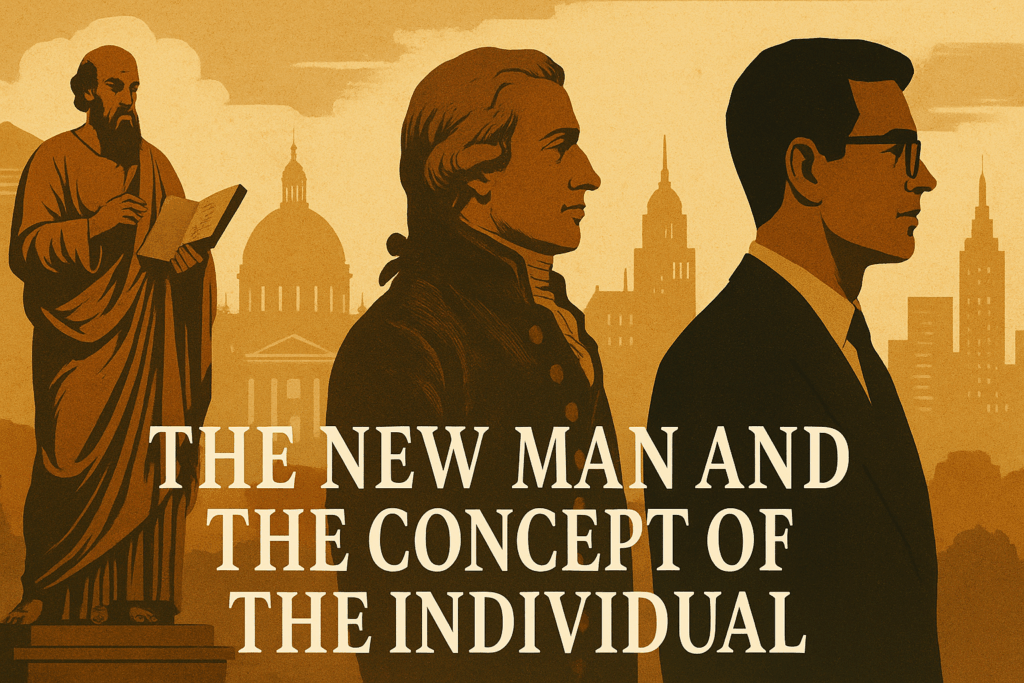One of the most transformative elements in Paul’s theology is his vision of the “new man”—an individual who transcends the divisions and identities of the old world to stand renewed in Christ. In this paradigm, Paul offers more than personal piety: he presents the foundation of the very idea of the individual as the locus of worth, dignity, and responsibility. This Pauline vision did not remain confined within the walls of the church. It leavened the culture of the West, providing the conceptual roots for modern notions of equality, human rights, and personal freedom—values which, though often labeled “secular,” are deeply indebted to the Christian soil in which they were first nurtured.

The Scriptural Witness
Paul’s declaration in Galatians 3:28 is the clearest summary: “There is neither Jew nor Greek, there is neither bond nor free, there is neither male nor female: for ye are all one in Christ Jesus.” In these words, the Apostle shatters the dividing lines of ethnicity, class, and gender. No accident of birth, no social station, and no cultural distinction grants superiority or inferiority before God. Here is the germ of a universal human equality that would later inspire movements for abolition, suffrage, and civil rights.
Paul reiterates this truth in Colossians 3:11: “Where there is neither Greek nor Jew, circumcision nor uncircumcision, Barbarian, Scythian, bond nor free: but Christ is all, and in all.” The extension of equality to despised groups like Barbarians and Scythians demonstrates the radical inclusivity of Paul’s vision. By grounding worth in Christ’s presence within each person, Paul laid the foundation for an ethic that no longer relied on tribal or cultural boundaries but on the inherent dignity of the individual.
In Ephesians 2:14–16, Paul describes Christ as the one who “hath broken down the middle wall of partition” between Jew and Gentile, making peace by creating in himself “one new man.” This passage emphasizes reconciliation, not merely tolerance. It is not that diverse groups are forced to coexist, but that in Christ a new humanity emerges—one in which hostilities are overcome and a common identity transcends division. The principle of peace through unity in diversity, so cherished in modern democratic societies, is already proclaimed here.
Finally, 2 Corinthians 5:17 offers the personal dimension of this transformation: “Therefore if any man be in Christ, he is a new creature: old things are passed away; behold, all things are become new.” This radical interior renewal anchors the external call for equality. The new man is not merely an ideological abstraction but a lived reality of moral and spiritual transformation. Outward justice and inward renewal are inseparable in Paul’s paradigm.
The Pauline Paradigm and Modern Ethics
The significance of this Pauline vision cannot be overstated. The idea that each person bears equal dignity, regardless of background or social standing, was foreign to the stratified world of antiquity. Ancient societies were structured by hierarchies—master over slave, citizen over foreigner, male over female. Paul’s proclamation introduced a moral revolution. The claim that every person could be “in Christ” was the seed that grew into the principle that every person possesses inviolable rights.
Modern secular ethics—our insistence on the equality of all before the law, the rejection of discrimination, and the affirmation of universal human worth—rests squarely on this Pauline paradigm. When we assert that no one should be excluded because of race, gender, or social status, we echo Paul’s declaration to the Galatians. When we work for reconciliation between hostile communities, we are retracing Paul’s steps in Ephesians. And when we affirm that individuals have the capacity for renewal, we carry forward the conviction of 2 Corinthians.
Why It Matters Today
Recognizing the Pauline roots of modern ethics is not simply a matter of historical curiosity. It reminds us that the values we prize—dignity, equality, freedom—are fragile, and they arose not from abstract philosophy alone but from the moral vision of the Apostle Paul, filtered through centuries of Christian reflection. To forget these roots is to risk severing the tree of modern civilization from the soil that sustains it. Without the Pauline paradigm of the new man, our claims to equality could wither into mere preference, lacking the transcendent grounding that gave them life.
Paul’s vision of the new man is therefore not only a theological truth but a civilizational foundation. It calls us to remember that the modern world we inhabit—one that prizes human rights, diversity, and personal dignity—is indebted to the radical proclamation of a first-century apostle who dared to announce that in Christ all are made new.
Memorize The Scriptures And Doctrines From This Pauline Paradigm Here
